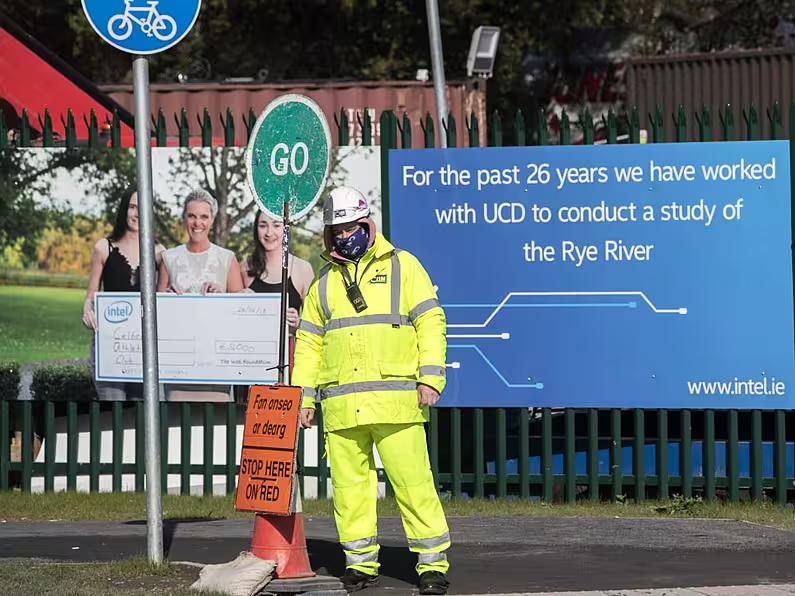Aodhan O'Faolain
The High Court has dismissed a challenge by a local man aimed at overturning permission for a €3.76 billion expansion of Intel Ireland’s plant in Co Kildare.
In a written judgement Mr Justice Richard Humphreys said he was satisfied to dismiss all grounds of the action brought by Thomas Reid.
He had claimed that the project will expand Intel’s 160-acre campus by 30 acres, take more than four years to construct and involve two years of rock quarrying to get structures to formation level.
At the operational stage, environmental emissions will increase, there was no proper consideration of what is effectively a large-scale quarrying operation and no information before An Bord Pleanála on the entirety of the project, he argued.
Mr Reid won a landmark Supreme Court decision in 2015 preventing the use of compulsory purchase orders for his 29-hectare Hensor House farm, which dates back to the mid-1700s.
His home is located some 500 metres to the west of the site of the proposed development.
EU Directives
Mr Reid’s judicial review challenge over An Bord Pleanala’s November 2019 permission for expansion of Intel’s plant.
In his challenge, Mr Reid claimed the board’s permission was granted contrary to the requirements of various EC Directives and related Irish legislation.
The Directives at issue are the Habitats, Environmental Impact Assessments and Seveso (Control of Major Accident Hazards Involving Dangerous Substances) Directives.
He claimed the Intel manufacturing plant adjoins the Rye River Valley/Carton Special Area of Conservation which has conservation objectives including for bryophytes.
He claimed there is a risk to that site from emissions if not properly mitigated.
His case is against the Board, while Intel is a notice party.
Dublin Bay
In opposing the action, the Board denied the claims, including claims it acted contrary to the Directives.
It said it had considered there was no likelihood the development would have a significant effect on four Dublin Bay European sites.
It was also satisfied, having carried out an Appropriate Assessment, the development would not adversely affect the integrity of the Rye River Valley/ Carton SAC in view of that site’s conservation objectives. It denied it failed to carry out assessments based on the best scientific knowledge in the field.
The case was before Mr Justice Humphreys via a telescoped hearing, involving an application for leave for judicial review and the substantive case being heard together.
The matter will return before the court at a later date.













